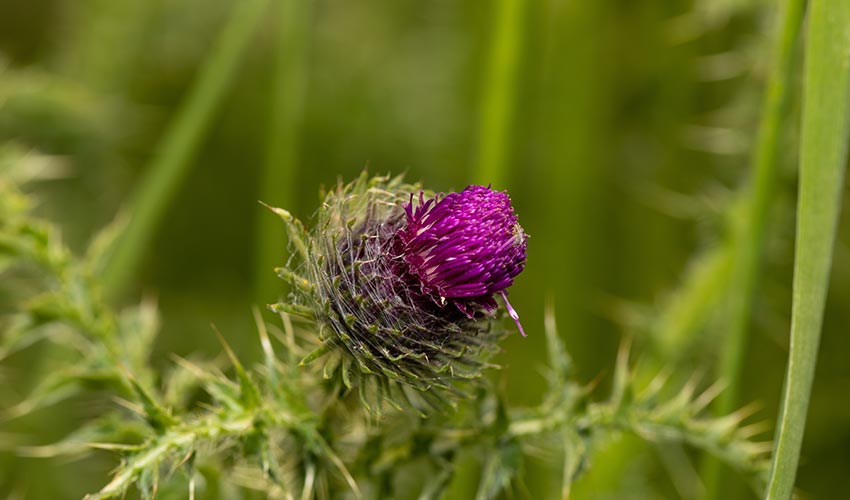Liver Health – The Road out of Trouble
Today, let us dig deeper in the function of our liver, how to recognise liver issues and how to strengthen it. This hardworking organ deserves a standing ovation for its tireless efforts. I mean, seriously, it handles over 500 functions! Talk about an overachiever. Day in and day out, your liver is on duty, providing your body with energy, nutrients, and even playing referee to keep infections and toxins at bay. It's like having a personal bodyguard that also doubles as a chef and a janitor. Now, that’s impressive, right? But here's the kicker: when your liver isn't functioning properly, things can go downhill fast. Your whole system starts feeling the effects of its grumpy state. It's like having a cranky boss who messes up everything, from cleaning the blood to producing essential proteins. Not cool, liver, not cool. Now, no need to worry, your liver has a pretty neat trick up its sleeve. It can actually regenerate itself, like a superhero in a tight spot, replacing old tissue with shiny new cells. But unfortunately, sometimes the bad guys win, and liver disease sets in. Scar tissues form, blocking the blood flow and slowing down the whole nutrient and hormone party. It's like throwing a monkey wrench into the gears of a well-oiled machine. Liver damage comes with a bundle of issues. We're talking metabolism hiccups, circulation troubles, hormonal chaos, and digestion drama. It's like throwing a wild party in your body and inviting all the troublemakers.
So, what causes these liver shenanigans? Well, it's a motley crew of culprits: hepatitis, gallstones, fatty liver disease, cystic fibrosis, cirrhosis – just to name a few troublemakers. They crash the liver's party and leave behind a big mess. Diagnosing liver problems is no walk in the park. It involves physical exams, blood tests, CT scans, ultrasounds, and even biopsies. Your liver might be feeling a little violated during this process, but hey, it's for a good cause. Now, let's talk about the complications. Brace yourself, because they're no joke. We're talking kidney failure, diabetes, excessive bleeding, the risk of infection, and even excessive fluid in the brain. Yeah, it's a real circus in there. Unfortunately, liver disease doesn't come with a handy dandy reliable symptom. It's like trying to find Waldo in a sea of red and white stripes. Those sneaky little livers can cause trouble without giving away any clues. But fear not! Ancient Purity is here to help you recognise those early signs of liver damage. Because, let's face it, an unhealthy liver affects your whole body, and we want you feeling your best. So stay vigilant and listen to your body. It's trying to tell you something, and we're here to help you decipher its tricky language.

Vomiting & Nausea... Oh, the delightful dance of nausea and vomiting. It's like a whirlwind of bodily chaos, with a guest list that includes motion sickness, early pregnancy, intense pain, emotional stress, gastritis, and even some party crashers like heart attacks, concussions, brain tumours, and certain forms of cancer. Talk about a diverse crowd! Now, here's a golden rule: never underestimate the power of feeling queasy and tossing your cookies. Seriously, pay attention to those rebellious stomach vibes. The timing of your nausea can hold valuable clues to its mischievous cause. If it hits you right after a meal, well, it might just be a case of food poisoning. Bon appétit, right? Sadly, many folks brush off these symptoms as something less serious. But let me tell you, my dear friend, those with liver damage might be feeling this way because their liver is throwing a tantrum and struggling to properly process and eliminate toxins. It's like having a toxic relationship with your own body's detox system. Not cool, liver, not cool at all. And here's the kicker: constant vomiting can leave you feeling as dry as the Sahara desert. Dehydration becomes the ultimate party pooper, putting your health in serious jeopardy. So, if you find yourself battling waves of nausea and launching into vomit fests, make sure to stay hydrated. Sip on filtered water like it's your new best friend. Take small, frequent sips, of course. We don't want to overwhelm your rebellious tummy. Remember, your body is sending signals. So listen up, pay attention, and take care of yourself because nobody likes a party crasher, especially when it's your own liver causing all the commotion.
Tiredness & Weakness... Then we have the wonderful world of weakness and tiredness, also known as the glamorous duo of fatigue. They can take centre stage for various reasons, from a night of tossing and turning to something more sinister lurking in the shadows. Fatigue is no ordinary sleepiness, my friend. It's like a black hole of physical and mental energy, sucking away your motivation and making even simple tasks feel like climbing Mount Everest in roller skates. Talk about a workout! Now, here's a liver-related fun fact: fatigue loves to cosy up with liver disease. They're like two peas in a pod, but we're not exactly sure why they have such a close relationship. According to those mad scientists in the lab, it might have something to do with changes in brain neurotransmission caused by excess fluid partying in your skull. And guess what? That excess fluid is a sneaky early sign of liver disease. It's like your liver is inviting fatigue over for an extended ‘staycation’. You see, a compromised liver isn't the best at playing host to energy and vitality. It's like having a lazy caretaker who forgets to keep the lights on. Your immune system takes a hit, stress runs wild like an unruly toddler, and weakness and tiredness start hogging the spotlight. It's a real circus. But hey, there's more! Fatigue isn't picky. It loves to throw a party with its rowdy friends like drugs, alcohol, stress, depression, poor nutrition, dehydration, impaired immune system, and certain medical treatments. It's like the ultimate guest list for a fatigue extravaganza. And for those with liver disease, fatigue takes the crown as the most prominent symptom, strutting its stuff like a diva in the spotlight. So, rest assured that fatigue has many faces and liver disease just happens to be one of its favourites. Take care of yourself, address the underlying causes, and remember that even fatigue needs to take a break from the limelight now and then. By the way, Ancient Purity Adrenal Complex is designed for people having a feeling of constant tiredness or those wishing to aid keep their adrenals in decent health.

Loss of Appetite... OK, the ever-changing appetite. One day you're ready to devour a buffet like there's no tomorrow, and the next day you can barely muster the energy to nibble on a cracker. It's a mysterious game with many players vying for the title of "appetite suppressor extraordinaire." Now, brace yourself for the list of culprits that can put a damper on your hunger. Aside from liver damage, we've got pregnancy, heart failure, HIV, hypothyroidism, medications that sound scarier than a horror movie (hello, antibiotics and chemotherapy drugs), and even kidney failure. Talk about an appetite ambush! And there’s more! If you find yourself in the cirrhotic patient club or suffering from other liver diseases, malnutrition might join the party, making itself at home in up to 80% of patients. It's like your appetite decides to take an extended vacation, leaving you unintentionally munching on low-calorie foods or just forgetting to eat altogether. Who needs calories anyway, right? Now, let's talk about the not-so-fun symptoms of chronic liver disease. Prepare for a triple threat: abdominal pain, bloating, and cramps. It's like a twisted game show where your digestion and nutrient absorption get impaired, and vitamins and minerals go on strike. No wonder your appetite throws in the towel! But hold on tight, because we've got one more contender in this appetite-squelching extravaganza: ascites. Picture an abnormal accumulation of fluid in your abdominal cavity, cramping your style and restricting your stomach's expansion like a strict fashion designer. That poor stomach just can't stretch its legs, leading to a suppressed appetite and some lovely bouts of nausea. What a party pooper, that ascites. So, my appetite-challenged comrade, know that there are plenty of reasons why your appetite might be playing hard to get. Keep an eye out for the underlying causes, nourish yourself as best you can, and remember that even the most elusive appetite needs a little coaxing from time to time. Bon appétit, if you can find it!
Digestive Conditions... Our digestive system is like a bustling group of organs working together to turn food into energy and nutrients. It's like a gourmet kitchen where everything is meticulously prepared and transformed into ultimate sustenance. Imagine the following star-studded cast: the mouth, esophagus, liver, stomach, gallbladder, small and large intestines, pancreas, anus, and rectum. They're the real MVPs responsible for making sure those essential nutrients make their way into our bodies and kicking leftover waste products to the curb. Talk about an efficient clean-up crew! And, oh, let's not forget the rogue gang of digestive issues causing mischief and mayhem in our gut. Heartburn, Irritable Bowel Syndrome (IBS), chronic constipation, diarrhoea, gas, intestinal cramps, and food intolerances are quite the troublemakers. They're like the rebellious rebels of the digestive party, disrupting the smooth flow of things. Quite the drama queens, if you ask me. Now, here's where things get interesting. Cirrhotic patients often experience some serious gut dysfunction. It's like the hormones responsible for keeping hunger at bay decide to go on strike and leave them in a constant state of tummy turmoil. Way to pull a hunger hormone rebellion, ghrelin! The good news is that there are ways to conquer these digestive villains. Lifestyle changes to the rescue! Instead of overwhelming your poor digestive system, opt for smaller, more frequent meals. Think of it as serving bite-sized portions rather than a never-ending buffet. And don't forget to invite fibre to the party. Fruits, vegetables, beans, legumes, and whole grains will be the life of the gastrointestinal shindig, keeping things running smoothly. Oh, and filtered water, the hero of digestion. Not only does it cleanse the entire gastrointestinal tract, but it also plays the role of facilitator, helping our bodies break down food and absorb those precious nutrients. Cheers to you, hydration powerhouse! Let's not overlook the liver, that brave hero of the digestive squad. Keep an eye on how your digestion is going, my friends, for it can be a window into your overall health. Gut dysfunction isn't just a nuisance; it can impact your quality of life and nutritional well-being. So, pay attention, notice any abnormalities, and remember that a happy gut is a happy life. In addition, Ancient Purity Digestive Enzymes Complex can help you keeping your gut satisfied as it enhances the uptake of food nutrients.

Changes in Urine Colour... Urine is the waste product made by the kidneys. It gets its pale-yellow colour from a pigment called urochrome, and changes in colour can be caused by many things like dehydration, foods like rhubarb, B vitamins, urinary tract infections and some medications. Though it’s normal for your urine to change colour every day, if you notice it to be darker orange, amber or brown, it can be a sign of early liver damage. If this is the case, a change in urine colour can be due to the problems that occur in the bile ducts of the liver. Normal urine is made up of urea, uric acid, and water, though some diseases like diabetes, kidney disease, and jaundice can cause other substances such as sugar and bile pigments to appear in the urine. Darker urine can occur with liver disease due to the liver being unable to properly process and eliminate those substances. Early detection of liver disease usually means a more promising diagnosis, so if you notice sudden changes in the colour of your urine, first try to rule out some other, less harmful causes. If it’s a darker colour, try drinking more pure water to rule out dehydration. If this doesn’t fix the problem, consider certain foods you’ve eaten recently that may have caused the dis-colouration, or any new medications you’ve just begun taking.
Yellowing Skin... Next on the list is a jaundiced situation - that lovely yellow skin tone. It's like a neon sign screaming, "Something isn't right in this body!" Medically known as jaundice, it's a condition where the liver decides to take a little vacation from breaking down bilirubin, a fancy yellow pigment made from dead red blood cells. And believe me, when the liver goes on strike, that bilirubin builds up and leaks into the surrounding tissue, turning you into a real-life Simpson. Now, let's dive into the 3 categories of jaundice, because why stick to one when you can have 3, right? First up, we have pre-hepatic jaundice, like the opening act of a Liverpalooza concert. Then we've got hepatic jaundice, where the liver decides to throw a wild party and forget all about metabolising and excreting bilirubin. And last but not least, post-hepatic jaundice, the grand finale where the bilirubin gets stuck in traffic before exiting the liver. Talk about a jaundice extravaganza! Now, when it comes to liver disease causing jaundice, it's usually the hepatic kind. Our poor liver, bless its little hepatocytes, can fall victim to various issues from the mild and manageable to the potentially catastrophic. Malaria, sickle cell disease, hepatitis (acute or chronic), naughty drugs, and even autoimmune disorders can all join the jaundice party. Quite the motley crew, wouldn't you say? The symptoms of jaundice are like a checklist of unwelcome surprises. Yellow whites of the eyes? Check. Yellow skin? Double check. But wait, there's more! You could also experience itchiness, fatigue, abdominal pain, weight loss (not the fun kind), fever, vomiting, dark urine (bye-bye lemonade, hello cola), and pale stools (because why should rainbows be limited to Skittles?). Now, treatment for jaundice depends on the culprit behind the madness. Sometimes, you can keep an eye on it from the comfort of your own home, like a vigilant detective on the case. Just make sure to ditch the booze and any other substances that could make matters worse. Trust me, alcohol and jaundice do not mix well, like oil and water or clowns and dental appointments. So, if the Simpsons ever come knocking at your door asking for makeup tips, it might be time to have a chat with your health care practitioner. Jaundice may seem like a shocking transformation, but with the right diagnosis and treatment, you'll be back to your vibrant, non-yellow self in no time.

Changes in Stool Colour... Ah, the lovely topic of stool! Brace yourselves, folks, because we're about to take a wild ride through the colourful world of bodily waste. I would describe it like your digestive system is like a magician, breaking down food and turning it into this magical thing called stool. It's a delightful combination of undigested food, bacteria, dead cells, and even a touch of mucus for good measure. But here's the kicker: just like a chameleon, stool can change its colour for all sorts of harmless reasons. Now, a healthy stool can rock everything from light yellow to a deep, rich brown that would make a chocolate bar jealous. No need to panic, my friends. But here's where things get interesting. If you happen to spot your stool in shades of red, maroon, black, yellow, or even pale as a ghost, it could be a signal of some sneaky liver damage trying to crash the party. You see, when your liver is at its A-game, it releases some magical stuff called bile into your stool, giving it that oh-so-normal brown hue. But when the liver isn't quite up to snuff, the production of bile goes awry, leaving your stool looking like it got caught up in an avant-garde art experiment. But hold on tight, because there's more! Stool colour can also change due to wacky things like haemorrhoids (ouch!), tummy and intestinal bleeding (yikes!), certain veggies with vibrant colours, food dyes (the culprits!), iron pills (ironically enough), weight loss medication, and even everyone's favourite - diarrhoea! Now, we're not saying you should start analysing every shade change like a CSI detective, but it's important to keep an eye out for sudden or long-lasting changes that raise an eyebrow. And if those colourful surprises become frequent visitors, it's time to don your superhero cape and consult your trusted healthcare practitioner.
Changes In Abdominal Area... The marvellous land within our bellies! Welcome to the abdomen, my friends, a space between the chest and pelvis that's brimming with excitement. It's like a bustling city, full of vital organs that keep the digestive party going strong. We've got the stomach, small and large intestines, pancreas, liver, gallbladder, kidney, and spleen all hanging out in this happening neighbourhood. But here's the thing: when the abdomen starts acting up, it could mean a whole parade of possibilities marching through town. We're talking appendicitis, indigestion, constipation, intestinal obstruction, gastritis, ulcers - you name it! So, if you experience any tummy troubles, big or small, pay attention and take some notes. Now, let's talk about the liver, the rock star lurking on the upper right side of our belly, just beneath those fabulous ribs. When it comes to liver disease, changes start happening, and one of the mischief-makers is ascites. Picture this: ascites is like a balloon animal gone wild, causing abdominal distension once the liver decides to take an impromptu vacation. It's a special blend of high pressure in the liver's veins and a decrease in liver function due to some pesky scar tissue. Ascites love to ruin the party mostly during advanced liver disease, but they're not exclusive. Salt and water retention, congestive heart failure, and advanced kidney disease can also lure them out of hiding. Ascites may bring some friends along for the ride, and they're not always the most charming companions. Sudden weight gain, funky body distortion, difficulty breathing, loss of appetite, bloating, heartburn, nausea, and even the dreaded vomiting are all on the guest list. It's quite the shindig, isn't it? So, how do we deal with these rowdy abdomen antics? Well, it all depends on the underlying cause. When cirrhosis takes centre stage, managing ascites becomes an art form. We'll whip out our dietary restrictions, putting sodium on probation, and prescribe diuretics, those fancy water pills. Remember, when things start rumbling in there, it's time to pay attention. Understand the signs, listen to your body's whispers, and seek the guidance of medical wizards who specialise in this lively domain. Stay curious, stay vigilant, and may your abdomen forever be a vibrant neighbourhood of harmony and digestion!

Fluid Retention... The body regulates fluid through a complex process called homeostasis. To understand it easier, it’s best to think of it like this: a well-functioning body is able to balance all the fluids we receive from our food and drink, with all the fluids we excrete through the digestive system. When your body begins to function poorly it becomes unable to regulate water levels, and this can result in fluid retention. Fluid retention is an excessive build-up of water and other fluids within the circulatory system, skin tissues or cavities in the body. Up to 70% of our body is water, as it makes up most of our blood, organs, muscles, and bones. It causes swelling which can be seen all around the body, however, it is mostly noticed in puffiness of the feet and ankles, as well as the hands, fingers, and eyelids. Retention can occur in different parts of the body for different reasons. Some of these reasons include poor lymphatic drainage, changes in blood pressure, kidney problems, pregnancy, hormonal imbalances, food allergens, sluggish liver function and liver disease. Fluid retention can be worsened by poor diet, lack of exercise and artificial sweeteners. When trying to find the cause, it’s best to begin by avoiding or limiting various foods that can exacerbate the problem. These include dairy, preserved meat, processed food, refined sugars, honey, and glucose. You can also eat less salt, avoid refined carbohydrates, and increase your intake of vitamin B6 and other minerals like magnesium and potassium. Additionally, Ancient Purity supplies some potent Magnesium and Vitamin B supplements.
Skin Sensitivity Increase... Our fabulous skin – nature's window into our inner workings! They say it's like a crystal ball that hints at the mysteries unfolding inside our bodies. And when it comes to liver disease, our skin loves to spill the tea in its own sassy way. It's like a fashion show gone wrong, with all sorts of changes strutting their stuff on the catwalk of our epidermis. First up, we have the itchiness crew, making our skin feel like a scratching post for a dozen feral cats. Dryness joins the party, leaving us feeling like we've been stranded in the Sahara Desert for weeks without a drop of moisturiser. And let's not forget about the premature ageing squad, swooping in uninvited with wrinkles and brown liver spots, as if to say, "Surprise, darling! You thought you had more time, didn't you?" Hives and acne add their own flair, painting our face with the artwork of irritation, while painful rashes pop up like nosy neighbours peeking over the fence. If your liver decides to play hooky, your skin might become a diva, bruising at the slightest touch and screaming, "Handle with care, people!" Veins start showing off their dance moves, becoming more visible than Aunt Mildred's gossip at Sunday brunch. See, our liver is like the bouncer at the detoxification club, making sure toxins don't run amok in our bodies. But when it's not doing its job properly, those pesky toxins throw a wild party, creating free radicals, which damage our precious skin cells. Unable to handle this madness, the liver tries to evict those unwanted guests by pushing them out through the skin. Talk about sassy revenge! This eviction notice leads to skin problems like eczema and psoriasis, turning our dermis into a battleground of epic proportions. Now, let's talk about how a lousy liver affects the rest of us. Feeling sluggish? Blame it on the liver! Frequent headaches make you want to scream into a pillow? Yep, the liver could be behind that too. And don't get me started on that foggy mind-set, where even simple tasks feel like solving the mysteries of the universe. It's like our liver took a vacation and left us in a state of perpetual confusion.
However, it is not all doom and gloom as there's hope for our livers, and it involves a little liver TLC. When we treat our liver right, it rewards us handsomely. We're talking increased energy levels that make us feel like superheroes and clearer skin that could rival a baby's bottom. Fewer infections because our immune system finally gets the memo that it's time to step up its game. Digestive problems take a backseat, giving us a much-needed break from the party in our stomachs. Fresher breath and better oral health mean that our conversations become a lot more pleasant for everyone involved. And let's not forget the cherry on top – a positive mood that makes us feel like we can conquer the world.

Some ways to strengthen your liver function and ways to help prevent the above-mentioned issues include:
- Stop smoking and limit alcohol consumption
- Don’t consume processed foods, food containing refined sugar.
- Start a diet filled with foods rich in antioxidants
- Take liver-enhancing supplements like Ancient Purity Milk Thistle Powder or Capsules, basil and Ancient Purity Dandelion Root
- Consume liver-cleansing foods like garlic, Ancient Purity Turmeric Powder, grapefruit, avocado, broccoli and lemon
- Replacing your coffee with a cup of green tea or herbal tea such as Ancient Purity Maarr Tea, Ancient Purity Soursop Leaves Tea or Ancient Purity Pine Needles Tea.
- Limiting salt and animal proteins. It is recommended to replace your regular table salt with Ancient Purity Celtic Sea Salt
- Eat foods high in vitamin C
- Exercise daily for at least 20 minutes
- Drink plenty of Clean filtered water
Sensitivity to Certain Medication... Did you know that people with liver disease can be extra sensitive to medication, especially opioids? It's like their poor liver can't keep up with the task of breaking down and metabolising the drugs properly. This can lead to some major side effects, like feeling dazed, confused, and less alert. The reason for this sensitivity is because the liver plays a crucial role in breaking down and inactivating drugs, as well as changing them into active forms. When the liver is struggling, like in cases of liver disease, it can't do its job as well, leading to increased drug effects and potentially ineffective treatment. And it's not just opioids that can be affected. Liver disease can change how much of a drug is absorbed by the intestine, how quickly it's metabolised, and how quickly it's transported throughout the body. This means that different drugs can have different effects on the body, depending on the extent of liver damage. The good news is that liver disease can be treated when caught early, and there are even ways to prevent it. So, if you're taking medication and experiencing more side effects than usual, it's always best to head to the hospital and get checked out. Your liver will thank you!
Memory Conditions... Your liver, the unsung hero of your body, pulls double duty by keeping your brain in check. Sounds unbelievable, I know, but it's true! Liver failure can bring forth this fancy condition called hepatic encephalopathy. Basically, it's a nervous system frenzy caused by toxins going wild in your bloodstream. Think of it as a toxic party that makes your brain play host to memory loss, confusion, and concentration struggles. Now, here's the deal: a healthy liver does its superhero duty of filtering out those toxins, rendering them harmless before they wreak havoc. But, when your liver is a bit worse for wear, those toxins start piling up in your bloodstream, making you feel like a hot mess. Trust me when I say, a high dose of toxins is no good for your system. It's like having a rowdy frat party in your brain, impairing its smooth operation. But hold on, there's more to this than just an out-of-order liver. Turns out, things like dehydration, excessive protein, low levels of potassium and sodium, sedatives, and infections can also join in on the brain function sabotage party. So, if you want to keep your noggin in tiptop shape, mind your diet, wave bye-bye to alcohol and certain medications, and chug that pure water like it's your job. Lucky for you, hepatic encephalopathy is usually a transient issue that can easily be fixed. But beware! Ignoring treatment can turn this benign troublemaker into a chronic nightmare. So, keep your liver happy, and your brain will reward you with peak performance!

Disturbed Sleep... Insomnia, oh the sneaky little troublemaker that ruins your sleep like a ninja in the night. It may seem like a minor annoyance, but trust me, its effects are like a wrecking ball crashing into your quality of life. And guess what? Your liver wants to join the sleepless party too. Turns out, insomnia is a common sign of liver disease. Who knew? Maybe your liver is just jealous of all the attention your brain gets during the day, so it decides to interrupt your beauty rest as payback. Some people with liver issues become insomniacs, while others prefer to snooze indefinitely like they've won the sleep Olympics. Why does this madness happen, you ask? Well, it seems that liver disease messes with the production of melatonin, the hormone responsible for lulling us into dreamland. It also messes with histamine levels, because apparently, your liver thinks histamine is like that annoying neighbour who blasts music at odd hours. So, your body ends up having a wild, unpredictable sleep schedule that even the craziest party animal would envy. But wait, there's more! Liver damage brings along its buddies, Type-2 diabetes and obesity, and they're not exactly lullaby material either. These troublemakers have a knack for causing insomnia, just to make your sleep-deprived life even more frustrating. If you thought it couldn't get any worse, think again. The treatment for viral Hepatitis B and C, a little something called interferon, has a tendency to give insomnia the green light in some unfortunate souls. It's like your liver is saying, "Oh, you thought you were getting rid of me? Haha! Let me introduce you to my insomnia sidekick." And just when you thought you had enough on your plate, liver damage brings along sleep apnoea, the ultimate party crasher. Imagine trying to sleep peacefully when suddenly your breathing starts going on a roller coaster ride, starting and stopping like a broken record. Thanks, liver, for this exhilarating sleep adventure! But fear not, fellow warriors of the night! There are ways to fight this sleepless battle. Establishing a bedtime routine can be your secret weapon. Stick to a schedule, be strict with yourself, and maybe, just maybe, your liver will give up its nocturnal shenanigans. Avoiding alcohol and caffeine in the late afternoon is also a wise move. Remember, as much as you love that double shot of espresso, it won't help you win the sleep Olympics. Oh, and transforming your room into a sleep haven by making it dark and quiet might just be the sleep potion your tired soul needs. So, together we shall conquer insomnia and reclaim our rightful spot on the dreamland throne. Sleep well! You deserve it!
Vitamin Deficiencies... Liver disease may lead to some seriously punny vitamin deficiencies, and the most common culprit is good ol' Vitamin D. Picture it as the Batman of vitamins, swooping in to save the day by aiding in the absorption of calcium and keeping your bones strong and healthy. But alas, liver damage can be like the sneaky villain, causing a deficiency for a multitude of reasons. One of the main culprits is a loss of appetite. People with liver disease just don't feel the need to chow down, thanks to those pesky digestive issues. It's like their taste buds have gone on a permanent vacation. And let's not forget about ascites, that grumpy condition causing a reduced expansion capacity for the stomach. Talk about a party pooper! Liver disease doesn't stop there, oh no. It's like a smorgasbord of maladies for your poor body to deal with. Bacterial overgrowth, villus atrophy, and other small intestine diseases join the gang and wreak havoc on your nutrient absorption and digestion. It's like a never-ending obstacle course for your poor gut! But don't worry! Sometimes it's not just your body's fault. You may find yourself on a low-calorie diet, either due to that lack of appetite or because your doc gave you some "wise" advice. They mean well, but a low protein/calorie diet to prevent hepatic encephalopathy can have some unexpected side effects. It's a true double-edged sword. Still, there is hope. By embracing a more balanced diet, you can vanquish these vitamin deficiencies and strengthen your bones. Fill your plate with vitamin D superheroes like eggs, fish, and fortified milk. It's like assembling your own team of Avengers for your body's well-being! Alternatively, take one of Ancient Purity’s quality Vitamin D supplements. So, remember, a diet with the right nutrients is your ticket to being the hero of your own health story. Save those bones, save the world!

Muscle Loss... Okay, folks, listen up! Want to hear the latest gossip from the liver town? Well, apparently, if your liver is acting up, it might start stealing muscle from your precious bod. I know, right? It's like the liver is playing a game of hide and seek. But instead of hiding, it's snatching away your muscles. They even have a fancy name for it: sarcopenia. Basically, it's when your skeletal muscles decide to pack their bags and leave because they're not getting the nutrients they need. And who's to blame for this circus act? You guessed it, the liver! That multitasking organ is supposed to be in charge of all your energy needs. Think of it as your body's personal Energiser Bunny. But here's the thing: when you have liver disease, your appetite decides to take a vacation. It's like your taste buds have gone on strike and left you with nothing but a bunch of nausea and a sad-looking salad. And that's when the trouble starts. With poor nutrition and a lack of foodie enthusiasm, your body starts going, "Well, I guess it's time to start cannibalising ourselves!" First, it feasts on your fat reserves, which, let's be honest, most of us wouldn't mind losing. But once that's gone, it's like a horror movie sequel, and the liver goes after your precious muscles. I mean, c'mon, give those biceps a break, liver! Scientific research has shown that there's a strong connection between being malnourished and becoming a victim of this muscle-stealing scheme. It's like they're partners in crime, high-fiving each other in the dark corners of your body. There are steps you can take to kick this liver disease drama to the curb. First and foremost, you gotta give your body some TLC through proper nutrition. Control what goes into that pretty mouth of yours and make sure you're fuelling it regularly. It doesn't have to be a buffet-level feast; even a tiny nibble can make a world of difference. By doing this, you're giving your body the essential nutrients it craves, like a groupie longing for its rock star. And with those nutrients, your body can turn them into the energy it needs to keep those muscles strong and sassy. So, remember, when liver damage threatens your muscles, it's time to outsmart that sneaky organ. Take charge of what you eat, feed yourself regularly like a boss, and show that liver who's the real muscle mogul in town!
We will be back with in depth solutions and focus purely on regeneration soon. If you're reading this sometime after this release look in the Guides Section of the Blog. You can also find more products to support Liver Health, in our Health Goals - Liver Health






















